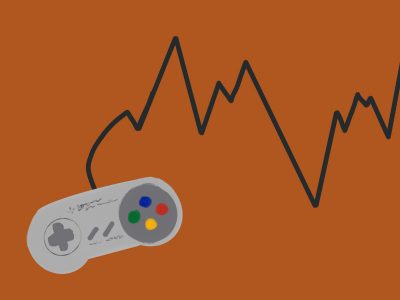Last week, a group of Reddit users harnessed the power of collective action to boost shares of an otherwise dying company, and, in turn, make a set of uber-wealthy hedge funders cry. In all fairness, I don’t know if the hedge fund managers who lost billions at Melvin Capital or Citron actually cried, but I digress.

While I am no financial expert, I will break down this incredibly complex mess the best I can.
Our saga begins on the wallstreetbets Reddit forum, where some users took notice of Wall Street hedge funds that were shorting — or betting against the value of — GameStop stock. In fact, the video game retailer was so popular amongst short-sellers it was the second-most-shorted stock on both the New York Stock Exchange and Nasdaq.
In the simplest terms, shorting a stock means the investor borrows a stock at a high price, sells it at that price and then buys it back at a lower price to return it to the lender.
Here is the hypothetical: You borrow one share of XYZ stock when it is worth $100 and sell it to another investor. You’ve just made $100, but that money is not yours to keep because you borrowed the stock and have to return it to the lender. XYZ stock ultimately falls in price to $30 a share, so you buy back a share at $30, return the share to the lender and keep the $70 difference. Congrats, you just shorted a stock.
The problem for the Wall Streeters in our saga was that despite making a relatively safe bet against GameStop— a company with a value that had been consistently falling since 2013 — Redditors began buying up shares and driving the stock price from $18 a share to a whopping $380 a share.
When the stock price soared, the hedge funders were forced to buy more shares at the higher price to cover their position, ultimately losing billions in what is called a “short squeeze.”
One hedge fund, Melvin Capital, lost so much money on its short position that two other financial firms, Citadel and Point72, had to bail them out to the tune of nearly $3 billion.

Unsurprisingly, rich people hate losing money. And what do they do when they lose money?
Apparently, they cry and whine on Twitter like investor Michael Burry did. In a since-deleted Tweet, he claimed trading in GameStop was “unnatural, insane, and dangerous.” He took it a step further and called for “legal and regulatory repercussions” for the Redditors who traded the stock.
In a CNBC interview, CEO and Nasdaq President Adena Friedman said regulators should be vigilant of the situation because “manipulation is manipulation.”
Ask yourself this: When was the last time an investor or Wall Streeter ever called for more financial regulation?
Where was all of this hand wringing about manipulation or increasing regulation at the start of the COVID-19 pandemic when various U.S. senators sold major stock holdings right after receiving intelligence briefings about the virus and just before the market crashed?
Where were the calls for market regulation after Wall Street required billions of dollars in government handouts after the 2008 financial crisis — a crisis created by Wall Street?
To be clear, this is not an argument for or against more Wall Street regulation.
It is, however, a warning to be vigilant of the intentions of those calling for such things in response to the GameStop saga.
It is critical to understand that when people such as Friedman and Burry call for regulation, they aren’t calling for it for themselves or their class of financial traders. They are calling for regulation to tamp down the collective action of the regular people who hurt their feelings.
The collective action and power regular people wield when banded together is what’s really at the heart of this whole story.
If the collective action of a set of Reddit users can upend massive financial markets and force financial elites to lose billions, what can’t the power of collective action accomplish?



























































































































